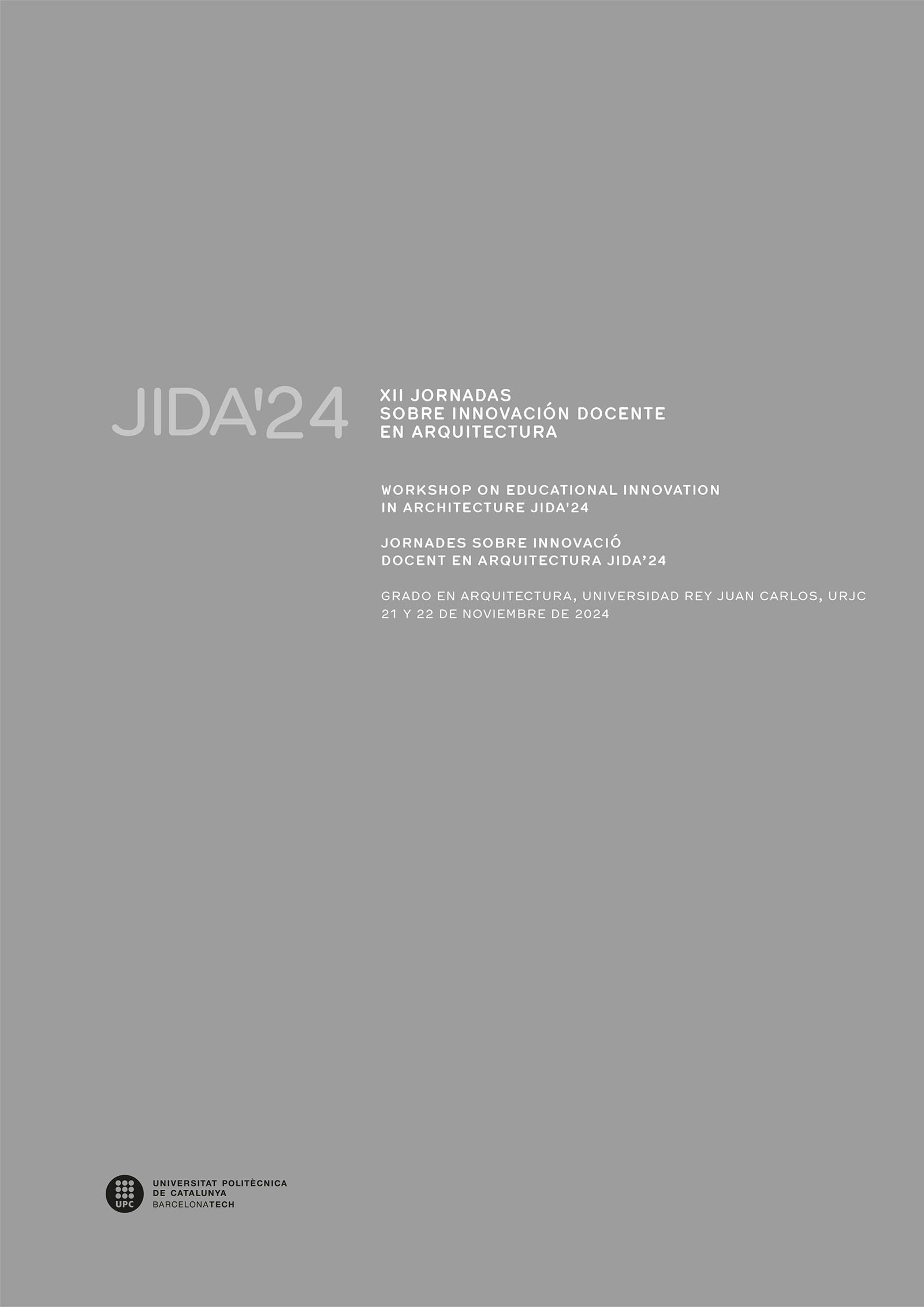KLIK: activation actions as learning methodology
DOI:
https://doi.org/10.5821/jida.2024.13292Keywords:
citizen activation, co-creation, urban agenda, inclusive urbanismAbstract
Teaching experience developed in an optional subject of the Degree in Fundamentals of Architecture, where we have collaborated with the Kutxa Foundation, following a service-learning model is presented. The objective is twofold: to tigger a change of attitude towards the 2030 Agenda through various KLICK's or specific activation actions; and to train students in the generation of future urban scenarios that take into account the diversity and real needs and in the management of the Urban Agenda instrument. Classroom work based on collaborative teaching methods is complemented by the process of co-creation and implementation of the KLIK, enabling students to have direct contact with associations and citizens. In addition, traditional techniques of participation and tactical urbanism have been combined with virtual reality techniques and analysis through big data. The results obtained show an enrichment in the acquisition of competences in the students.
References
Baraldi, Victoria. 2021. «John Dewey: la educación como proceso de reconstrucción de experiencias». Revista de la Escuela de Ciencias de la Educación, 1(16), 68-76.
Bustillo, Andrés, Alaguero, Mario, Miguel, Ines, Saiz, Jose M. y Iglesias, Lena. S. 2015. «A flexible platform for the creation of 3D semi-immersive environments to teach Cultural Heritage». Digital Applications in Archaeology and Cultural Heritage, 2(4), 248-259.
Díaz-García, Vicente y LopezDeAsiain, Maria. 2022. «Aprendizaje-servicio en la docencia de la arquitectura: presupuestos participativos y los Objetivos de Desarrollo Sostenible». ACE Arquitectura Ciudad y Entorno, 16(48).
García-Gutiérrez, Juan, Ruiz-Corbella, Marta y del Pozo, Aracelli. 2020. «Innovación y aprendizaje-servicio virtual: elementos para una reflexión basada en la experiencia». RIDAS.Revista Iberoamericana de Aprendizaje-Servicio, (9), 62-80.
Globa, Anastasia, Wang, Rui, y Beza, Beau. 2019. Sensory urbanism and placemaking exploring virtual reality and the creation of place. Proceedings of the 24th International Conference of the Association for Computer-Aided Architectural Design Research in Asia, Volume 2, 737-746.
Gutiérrez-Vázquez, Lucia, Seve, Bruno, y Amann-Alcocer, Atxu. 2023. «Service-learning for a more than human paradigm shift in architecture schools». Journal of the Faculty of Architecture and Urbanism, 12(24), 43-54.
Martí, Pablo, Nolasco-Cirugeda, Almudena, y Serrano-Estrada, Leticia. 2022. «La contribución del Big Data al estudio de la sostenibilidad de la forma urbana». Ciudad y Territorio. Estudios Territoriales. Monográfico. 2022, 54(M).
Naciones Unidas, Asamblea General. 2015. Agenda 2030 para el Desarrollo Sostenible. Nueva York.
Naciones Unidas, Asamblea General. 2000. Declaración del Milenio. Nueva York.
Naciones Unidas-Habitat. 2016. Nueva Agenda Urbana. Quito.
Rodríguez Gallego, Margarita Rosa. 2014. «El Aprendizaje-Servicio como estrategia metodológica en la Universidad». Revista Complutense de Educación, 25 (1), 95-113.
Sánchez, Javier R. 2002. «La enseñanza del urbanismo y la enseñanza de la práctica del urbanismo. Un proyecto docente en el marco de la realidad urbana compleja». Cuadernos de investigación urbanística, (35).
Sánchez, Monica, Fonseca, David, Franquesa, Jordi, y Martí, N. 2019. Virtual Urbanism: A User-Centered Approach. XIII CTV 2019 Proceedings: XIII International Conference on Virtual Cityand Territory: “Challenges and paradigms of the contemporary city”.
Telleria, Koldo, y Otamendi, Irizar. 2020. «Urbanismo participativo para la docencia sobre espacio público, llegó el confinamiento». En VIII Jornadas sobre Innovación Docente en Arquitectura (JIDA'20), libro de actas, pp. 967-980.



















